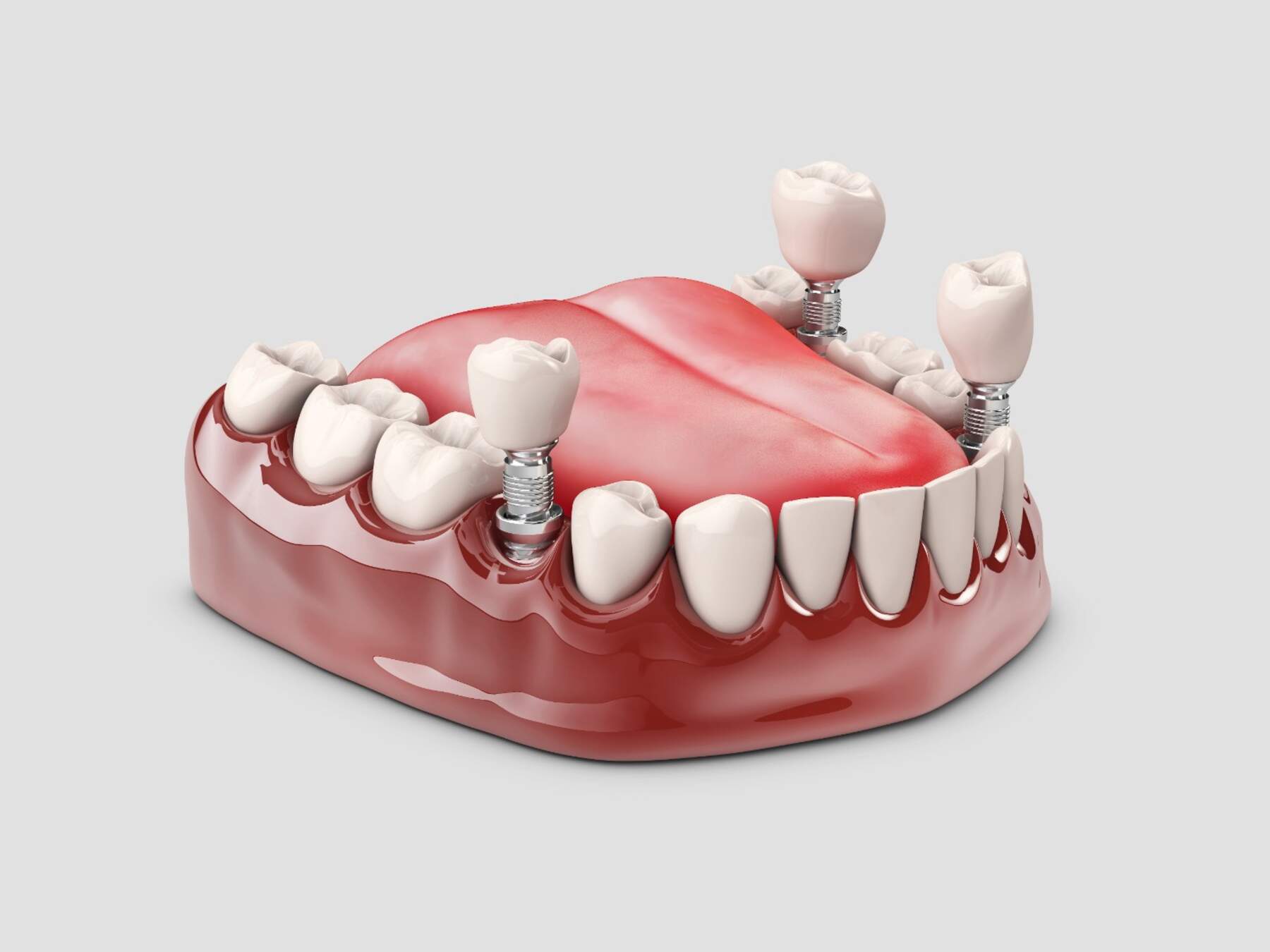Fluoride is a mineral that is found in several kinds of foods and in water. The purpose of this mineral is to prevent tooth decay and to remineralize the tooth enamel. Fluoride can be dangerous in large quantities even though it is difficult for it to cause any harm because of the low amount used in products like toothpaste and mouth rinses.
We need to educate ourselves on fluoride use as there are many myths regarding its use especially when it comes to water supply. It is easy to find negative and disconcerting information going around and this information is not based on anything. In this blog, we will try and understand what fluoride is, some facts about it, and some of the myths that are going around, in order to have enough information about its impact on the teeth.
What is fluoride?
Fluoride is a mineral found in your bones and teeth but also it is found in natural resources like in the soil, water, plants, air, and rocks. The purpose of it is to keep the tooth enamel strong and solid and it works by stopping or reversing the tooth decay process. Certain bacteria in the mouth can cause tooth decay, these bacteria are formed from eating sugar and carbohydrates produce acids that remove minerals from the surface of the tooth.
The use of fluoride products will revitalize the tooth surfaces, prevent cavities, and strengthen enamel. Another important factor to know is that this mineral is also added in small amounts in water and this process is called fluoridation.
What is fluoride used for?
Fluoride is used to improve dental health and it can be found in water or in dental products like, mouth rinses, toothpaste, and supplements. In some cases, the dentist can prescribe products with a higher level of fluoride to prevent the creation of cavities if you are more prone to it.
Other uses of fluoride can be in medical imaging scans, such as PET scans, as a cleaning agent, in pesticides and to assist in making Teflon, steel, and aluminum products.
Understanding how fluoride helps teeth
Fluoride is important in dental health because it helps to rebuild and slow down the loss of minerals from the tooth surface, reverses early signs of tooth decay, and prevents harmful bacteria from growing in the mouth. This helps maintain the teeth by working hand in hand with brushing and flossing.
Another important benefit of fluoride is to prevent damage from acid attacks that come from bacteria. Bacteria in your mouth can break down sugar and carbs and they eat the healthy minerals in your tooth enamel, and this process is called demineralization. This makes the teeth more prone to cavities. As we mentioned before the use of fluoride will help to remineralize your tooth enamel, which can prevent cavities and reverse early signs of tooth decay making them healthy.
Are there any potential side effects from fluoride?
Even though rare, when consumed in very large doses, fluoride can cause side effects. In dental products, the amount put in is controlled and cannot cause any damage, while in water 0.7 parts per million are added as this is the maximum allowed. Further, we will explain two of the most common side effects that can come from fluoride.
Dental fluorosis
When your teeth are still being formed under the gums and you overuse the fluoride, white spots on the surface will occur. This is called the process of dental fluorosis. This doesn’t cause any other harm or symptoms to the teeth. Children under the age of 8 who have still not developed all their permanent teeth are affected by this. To reduce the risk of developing dental fluorosis you have to be careful and supervise your children because they tend to swallow the toothpaste as it contains fluoride more than water.
Skeletal fluorosis
Dental fluorosis and skeletal fluorosis are similar but instead of teeth it also involves bones. Joint pain and stiffness can be some of the symptoms and if not treated it can change the bone structure and cause ligament calcification. It usually happens when the teeth are exposed to fluoride for a long time and at high levels.
Fluoride at dental check-ups
Sometimes getting regular amounts of fluoride from over-the-counter products or tap water is not enough to save your teeth from damage. The dentist can provide you with professional fluoride treatment for your teeth. These treatments can be gentle and short. The dentist will simply smooth the mineral over your tooth enamel. Talk with our dentist if you are not sure if the amount of fluoride you are getting is enough.
Some facts on fluoride
Fact: The fluoride mineral is found naturally in water, though usually not at a high enough level to protect teeth.
This mineral is found naturally in all water suppliers like rivers, ground waters, and lakes. Taking the right amount of fluoride supply in water is proven to protect your teeth and prevent their decay.
Fact: Fluoride is an important mineral for maintaining healthy teeth.
Fluoride is a mineral and taking it in the right amount, in over-the-counter products, or in drinking water strengthens teeth. Fluoride is not a medication. The fortification of fluoride helps to improve our health like other fortification methods like folic acid is added to bread and vitamin D is added to milk.
Fact: Community water fluoridation is the most cost-effective solution to protect oral health.
Fluoridation is the cheapest way to provide people in the same community with a way to prevent cavities and maintain oral health. Fluoridation in fact saves money by preventing tooth decay.
Fact: Fluoridated water is the best way to prevent everyone’s teeth from decaying.
Fluoridated water has benefits for both children and adults. Toothpaste and fluoridated water together prevent tooth decay. In places where fluoridated water is missing, pediatricians and dentists frequently recommend fluoride tablets to preserve children’s teeth since we are concerned that using toothpaste alone won’t be sufficient.
Fact: High levels of fluoride concentrations can cause dental fluorosis.
Dental fluorosis does not cause pain and will not affect the health or function of the teeth. This condition causes faint, white specks on the surface of the teeth and occurs during the tooth-forming years during the age of 8 if children are exposed to too many levels of fluoride. It will not impact the health and the functions of the teeth. Research shows that when children grow up and reach adulthood, the fluorosis on their teeth will become less noticeable than before as it lessens in severity.
Fact: Getting enough fluoride levels in childhood is crucial to having strong teeth in the future.
Fluoride is essential for children and babies who are developing teeth. Even before the teeth are fully developed and visible in the mouth, fluoridated water can have several benefits. To treat and prevent cavities it can be effective to add fluoridated water to your routine. This will provide strong and more resistant teeth throughout all of your life. A 2010 study found that consuming fluoridated water as a young child reduces the incidence of tooth loss brought on by dental decay 40 to 50 years later.
Fact: Children who swallow toothpaste are at higher risk of mild fluorosis.
Even though it has been thoroughly studied that fluoride water is safe for babies and young children, dental fluorosis is still possible. This happens especially in small children as they tend to swallow the toothpaste when they are cleaning their teeth. This condition will not harm the teeth or cause any issues in the child’s overall health. To prevent this, parents can supervise their children when they brush, give them the proper amount of toothpaste, and teach them to spit when they finish brushing. These small steps can prevent fluorosis from happening.
Fact: Leading medical and health organizations believe that water with fluoride is both effective and safe for our teeth.
Leading medical and health organizations confirm that water fluoridation is harmless. There is no connection between fluoride exposure and bone cancer, despite some studies that claim to the contrary.
Myths about fluoride
Myth: Fluoride is linked to cancer
One of the most commonly heard myths about fluoride is that it causes cancer, but this remains a myth. Multiple studies have been done to prove the effectiveness of the use of fluoride and they haven’t seen any link of it with cancer or any other illnesses.
Additionally, certain particular real-world comparisons between regions with and without water fluoridation demonstrate no change in cancer rates. Consider that both the American Academy of Family Physicians and the Institute of Medicine agree that fluoride is safe as further evidence that this is not a worry.
It isn’t linked to other issues either
There may be more misconceptions about the use of fluoride water or products. Fluoridated water does not raise the risk of diabetes, renal issues, or heart disease, according to a study. Autism and arthritis also don’t show any connection with the use of these products.
Myth: Fluoride can cause allergies
Another common misconception about fluoride is that it can cause allergies. This is also not true because this mineral is found in water and in a lot of places and foods, meaning that it would increase the number of people suffering from allergies by a lot. Furthermore, studies done by health organizations from all over the world have shown that there is no correlation and no connection between fluoridated water and allergies. Also, it does not cause other immunological side effects like hypersensitivity.
Myth: Fluoride can easily cause fluorosis
When you consume fluoride in incredibly high doses, you get a condition known as fluorosis. Technically, you could develop it, but you would need to drink a greater amount of fluoride than you normally do. That is true even if you consume fluoridated water, use fluoride-containing toothpaste, and occasionally receive fluoride treatments during routine dental cleanings. Fluorosis does occasionally happen, but it is extremely unusual, so you shouldn’t be concerned.
More on fluorosis
As we mentioned before, fluorosis is a very rare condition to develop. Additionally, even if it happens in every case it is mild. This condition will only cause faint white spots to show on your teeth. The tooth function or health is not affected whatsoever.
One worry is that your child has a chance of developing fluorosis if they swallow their fluoridated toothpaste. Even then, it will probably be a small occurrence that has no negative effects on their overall health. To that end, it is necessary to watch out for your children’s toothpaste especially if it contains fluoride or isn’t intended for swallowing, and make sure they don’t eat it.
Myth: Children shouldn’t use fluoride
Even if children are at higher risk of developing fluorosis, you should stop the use of these treatments. The dentist will recommend the right amount that is supposed to be used. As long as the proper amount is used the child will benefit from it. This will help them create stronger teeth in the future, and prevent tooth decay. This is the main reason why most countries contain levels of fluoride in their water.
Myth: Fluoride doesn’t help your teeth
If you do enough research on this topic you will be sure that fluoride not only doesn’t cause harm to your teeth but on the contrary is good for them, as it has a lot of benefits. One of the most important and proven benefits of it is that a lot of studies have shown that tooth decay can be prevented by fluoridation in both children and adults.
Myth: Other countries don’t fluoridate their water
You’ll find that a lot of myths concerning fluoride focus on fluoridated water. One of these is the lack of fluoride in the water in several nations, especially in Europe. Some misconceptions even claim that Europe forbids it which is totally untrue. This is false information since, instead of the American way, most European countries fluoridate their salt. The fluoride mineral is used worldwide, including in Australia, Europe, Latin America, and other regions because of its many benefits.




